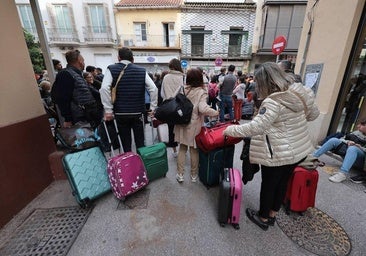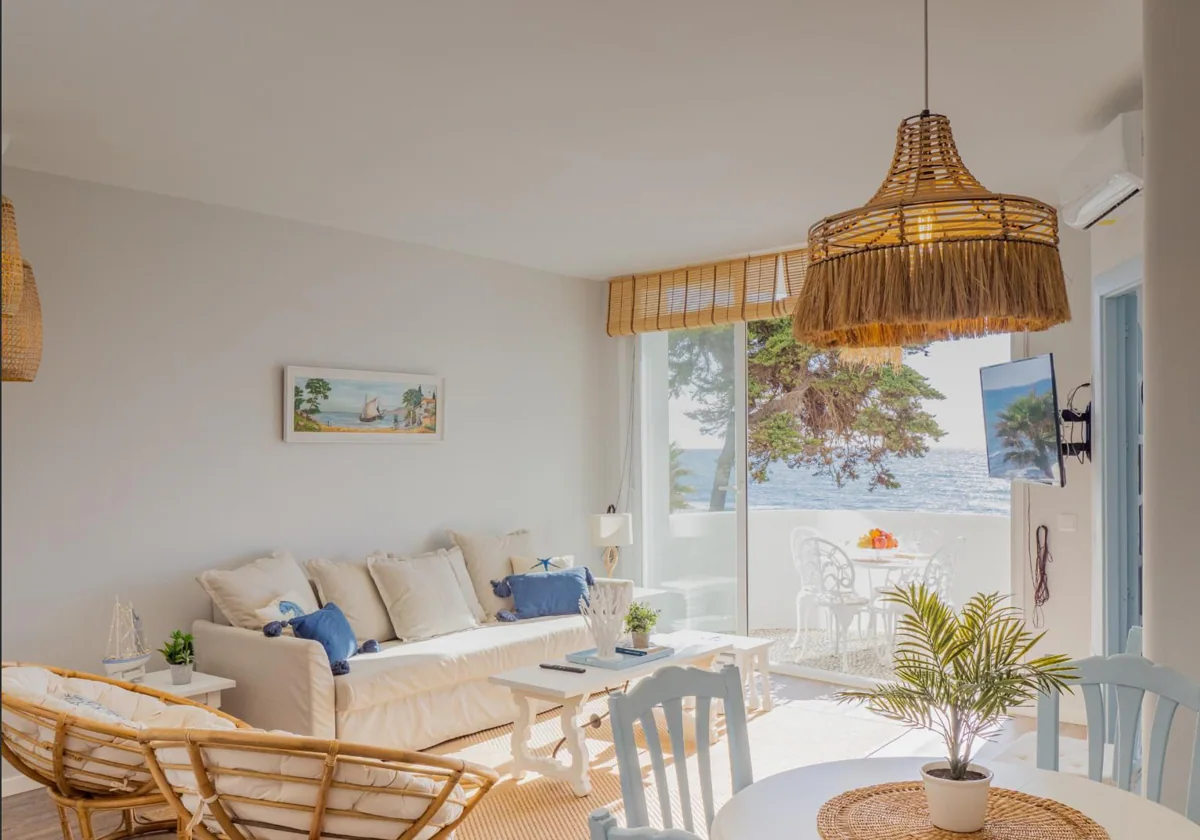Proposed 21% IVA sales tax on tourist apartments in Spain puts sector 'at risk'
The Andalusian tourist housing association's president has urged central government to maintain the reduced 10% rate for holiday homes as it is for the tourism sector as a whole
Pilar Martínez
Malaga
Tuesday, 19 November 2024, 16:54
Tourist property owners continue to add to the number of fronts on which they must do battle while being blamed for the housing crisis facing Malaga. In addition to the new prohibitions in the 43 districts of the city now considered as saturated with holiday lets and the requirement to have independent access and main supplies to the property in all other parts of the city, there is now the threat of an increase in the tax burden.
The agreement between PSOE and Sumar in Spain's central government to establish a 21% IVA sales tax on tourist homes within the new tax package for 2025, which is still pending the final position of the other parliamentary partners needed to move it forward, has generated concern in this business sector. The Andalusian tourist housing association (AVVA-Pro) considers that the imposition of this increased IVA "puts at risk the stability of a key sector for the Andalusian and Spanish economies.
AVVA-Pro's president Juan Cubo has called on central government to open a dialogue in order to analyse measures that guarantee "a fiscal balance, without compromising employment and the viability of companies." He further points out that "a commitment to sustainable tourism must include conditions that do not penalise those who comply with the regulations and contribute to the economic and social development of our community."
In this sense, those in the industry warn that IVA is a linear tax that ends up being passed on to the end customer, making the offer more expensive compared to other destinations and therefore affecting Spain's competitiveness in a highly competitive travel and tourism market. For this reason, AVVA-Pro considers that it would be important to evaluate other tax models that "look at differentiated criteria according to different variables, and which allow the sector's functioning and self-regulation to be improved, encouraging more professionalised practices and procedures in business activities." The association opts for these alternative models to IVA in view of the experiences developed in other countries, which "have proved to be significantly more balanced and effective."
Juan Cubo also urged the government to maintain the reduced IVA rate of 10% for holiday homes as it is for the tourism sector as a whole. Cubo makes it clear that the owners of these holiday properties already pay taxes and explains that right now these properties are taxed at 100% under personal income tax. "What is not paid in IVA is paid through income tax. In other words, the tax agency does not lose anything despite the public being led to believe that, as we do not pay IVA, we do not pay taxes. This is another falsehood being spread about and it is a lie. In fact, it is the holiday rental platforms themselves that report the income obtained from bookings to the tax authorities."
As to why the government is pushing for an IVA rate of 21% when hotels and other types of tourist accommodation are paying 10%, Cubo believes they are justifying it on the grounds that "probably in the 10% bracket the Tax Agency would lose out and the owners would gain from this measure. But IVA at 21% is an aberration."
The association's president also highlighted that "tourist accommodation complies with specific legislation and makes an important contribution to tourism and the local economy" and so he suggests maintaining a reduced rate of IVA in the tourism industry in order to promote employment and ensure the viability of businesses.
Tourist apartments
In this same agreement, PSOE and Sumar extended this 21% tax change to tourist flats built as a complex. This particular move has also got Aehcos - the Costa del Sol's association of hotel employers - jumping up and down as their members include business owners of tourist apartments. Aehcos has already expressed its categorical opposition to this measure and denounces the existing terminological confusion between the so-called tourist apartment complexes (AT), apartment-hotels (HA) and dwellings for tourist use (VUT).
Aehcos' president José Luque warned that: "from Aehcos we have long been calling on the government for a level playing field between all subgroups in the field of tourist accommodation and specifically we had demanded the imposition of IVA on tourist accommodation rentals as they are not taxed by this tax, as well as a series of other fiscal and employment measures that hotel and hotel-plus types of accommodation do have to bear in order to develop their business. Unfortunately, we now find that the government's response is the announcement of an increase to 21% IVA on tourist apartments without distinguishing them." On the Costa del Sol there are 970 tourist apartment blocks with over 63,400 beds.
Luque makes it clear that "Aehcos therefore applauds the government's announcement to impose IVA on all those who carry out a tourist activity without a fiscal contribution, as is the case with other types of accommodation. However, we are opposed to an unjustified and indiscriminate [tax] increase in a form of accommodation that is already regulated and taxed and which, moreover, is especially geared towards providing a service to families."

